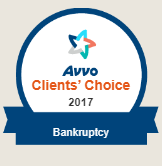Bankruptcy FAQ (Frequently Asked Questions)
Are There Different Types Of Bankruptcy?
Yes. Bankruptcies are categorized by Chapter. Individuals primarily file for bankruptcy under Chapter 7 or Chapter 13. There are a number of important differences between the two Chapters, two of which include the length of the bankruptcy and whether or not one’s creditors are paid back. A person is in a Chapter 7 for approximately three months, whereas a person is in a Chapter 13 for three to five years. Also, creditors are generally not paid back in a Chapter 7, versus a Chapter 13 where creditors are generally paid back, at least a percentage of what is owed.
What Are The Qualifications To File For Bankruptcy?
There are different qualifications for Chapter 7 and Chapter 13. In order to qualify for a Chapter 7, a person must pass the “Means Test.” The Means Test determines whether a person’s income is low enough to file for Chapter 7. The Means Test also takes into account a person’s monthly expenses; therefore a person can earn significant monthly income and still qualify for Chapter 7. In order to qualify for Chapter 13 a person must have sufficient disposable income, be current with their income tax return filings, and maintain debts that are below the limitations.
What Can Bankruptcy Do For Me?
Bankruptcy has the potential to end harassing calls and collection efforts from creditors; wipe out credit card, check cashing and medical debts; extinguish bank levies and wage garnishments; stop home foreclosures and vehicle repossessions; and Stop Internal Revenue Service and California Franchise Tax Board collections.
Will Bankruptcy Ruin My Credit?
In many cases, those people who are considering filing for bankruptcy already have a poor credit score due to their financial situation, hence the need to file for bankruptcy. Therefore, as a practical matter, the filing of bankruptcy may not have a major impact on your credit score. In any event, please remember that the filing of bankruptcy will not “ruin” your credit score, but rather has the potential to fix your credit score by providing you with a fresh start.
Who Will Know That I Filed For Bankruptcy?
Chances are most people will know if a person files for bankruptcy only if that person informs them. However, please note that the filing of a bankruptcy petition is public record and can be accessed by anyone willing to put in the effort. Also, a person’s creditors will be notified of the bankruptcy upon its filing.
Will My Employer Be Notified That I Filed For Bankruptcy?
Generally, no. However, in some circumstances when a person files a Chapter 13, the court will issue a wage order directing that person’s employer to deduct the monthly Plan payment from his/her paycheck and forward it directly to the trustee.
How Much Will It Cost Me To File Bankruptcy?
Bankruptcy costs are divided into two primary categories, court costs and attorney’s fees. Court costs consist of filing fees, which currently are $335.00 for Chapter 7 and $310.00 for Chapter 13. Attorney’s fees for a Chapter 13 are regulated by local rules, while attorney’s fees for a Chapter 7 usually depend on the complexity of one’s case and amount of debt.
How Long Does The Bankruptcy Process Last?
A person is in a Chapter 7 for approximately three months from the date of filing, whereas a person is in a Chapter 13 for three to five years.
Will I Have To Turnover My Property To The Trustee?
Generally, no. In addition to assisting a person discharge their debt, the bankruptcy attorney’s other primary goal is to protect his/her property. This goal is accomplished by taking advantage of exemption limits. By engaging in diligent and thorough pre-bankruptcy planning it is possible to determine what, if any, property will need to be turned over to the trustee. In most instances no property is turned over to the trustee.
What Is A Bankruptcy Trustee?
The bankruptcy trustee is an impartial party that is appointed to oversee and administer the case. In addition to other duties he/she will review the bankruptcy petition and related documents and examine the debtor under oath.


